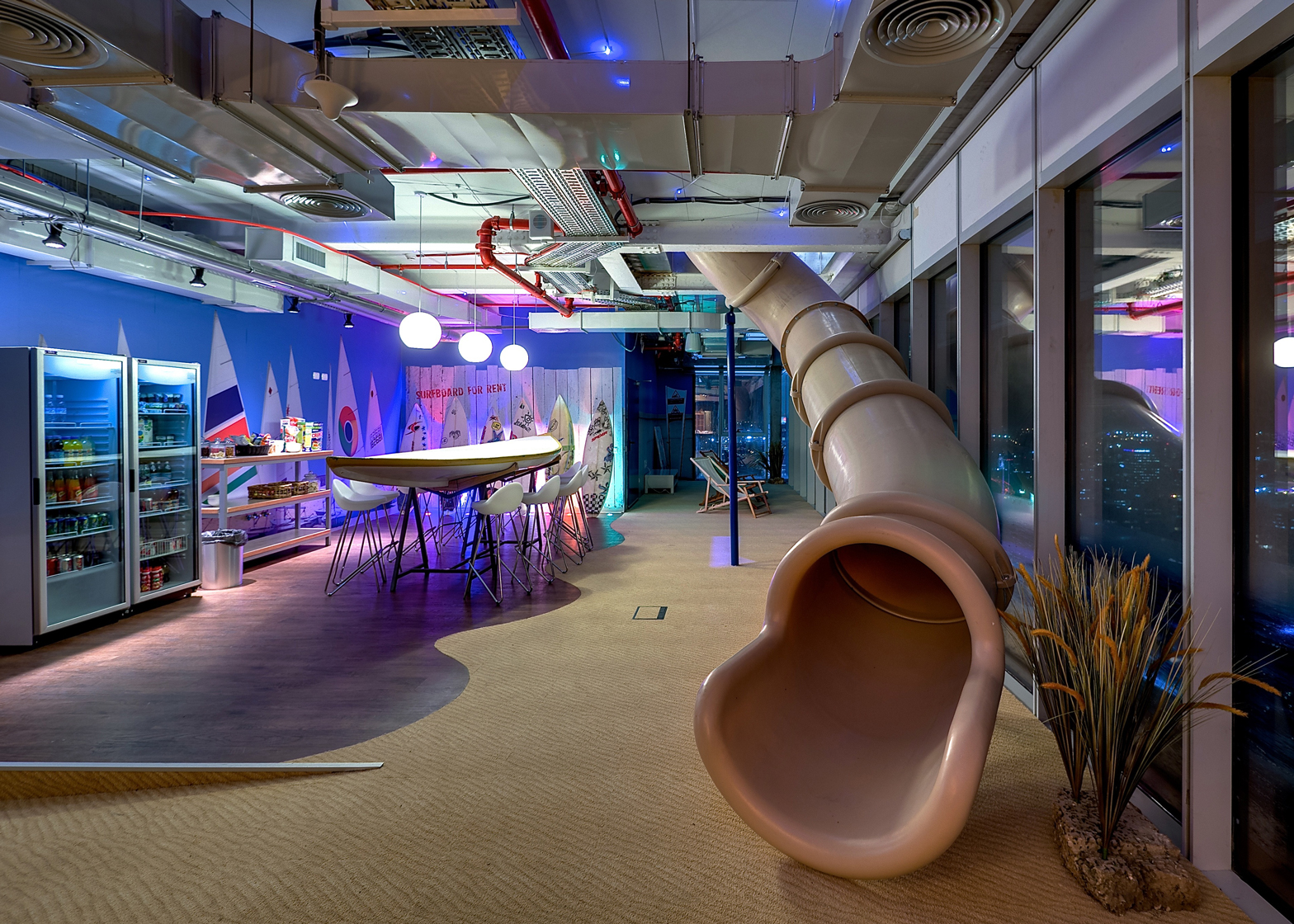The Google-inspired fad for slides and ping-pong tables has had a damaging impact on the workplace, according to office design expert Jeremy Myerson.
Myerson said the tech giant's influence had been "detrimental" to good workplace design and said the trend for treating offices as playgrounds is "a very bad idea".
"I think that the Google effect in the workplace is quite detrimental," Myerson told Dezeen. "Trying to treat the whole world as though every organisation should be like Google is a bit of a bad idea."
"One of the things the Google effect has had is the idea that work is somehow a playground and you can infantilise your staff," he added. "It's actually a very bad idea."
Myerson said that the office-as-playground might be appropriate for Google, but other companies should be wary of copying the tech giant.
Instead, businesses should first determine their own organisational culture and then brief designers to create workspaces that support and encourage that culture.
The Google approach is "right for their own company," Myerson said, but "each company needs its own fit between the physical infrastructure of the office and their own organisational culture."
Myerson, who is Helen Hamlyn chair of design at London's Royal College of Art and is an expert in workplace design, spoke to Dezeen as part of our Haworth white papers series of articles, produced in collaboration with the US office furniture giant.
"Work's a serious thing and I suppose the Haworth cultures model is a serious attempt to say that not all companies need a creative playpen," Myerson said, referring to a research methodology developed by Haworth that helps align workplace design with office culture.
Tech giant Google has pioneered gimmicky office interiors. Its Tel Aviv headquarters has an artificial beach as well as a slide, while one of its London offices features dodgem cars, beach huts and meeting rooms disguised as giant dice.
"'We want to be like Google' is a common misconception that clients try to convey to designers, and by that they mean funky offices, playful furniture and ping-pong tables or game rooms," agreed Haworth ideation manager Gabor Nagy.
"Problem is, if the organisation's culture is not like Google's, chances are very high that such design conceptions will back-fire: employees hanging out in the game room or playing ping pong while working will not be seen as creative innovators, but more like folks who are sabotaging their daily work."
Speaking at the Design Indaba conference in Cape Town last month, Fredrik Öst of Swedish graphic design studio Snask said that the famous slides at Google's campus in California were disliked by many Google employees.
"Everyone hates the slide because it ruins your clothes," said Öst, who visited the campus to give a lecture. "You go once on the first day and then you never go again."
Öst added: "If you work close to it you hear people scream constantly because it's tourists and new employees going in it all the time."

